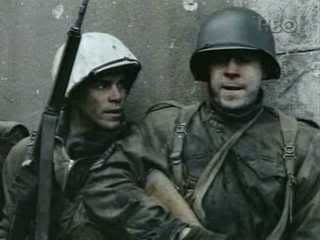Sixty Days Until GBR IV
Time flies. Now it’s doing loops, Immelmans and barrel-rolls.
There’s only sixty days left before the fourth annual Gun Blogger’s Rendezvous!
Here’s an update:
The raffle for the Para GI Expert is almost set up. Soldier’s Angels will be running it on-line. Tickets will be $10 each, and the quantity of tickets will not be limited. YOU NEED NOT BE PRESENT TO WIN.
ALL OTHER PRIZES are for ATTENDEES (or their representatives) ONLY. And here’s some of the swag you may get from attending:
Another (as yet unrevealed) Para pistol
A Hi-Point 9mm Carbine – their newest and latest:
(They ended Battlestar Galactica too soon, I think.)
A range bag from Dillon
T-shirts from GLOCK and probably Brownell’s, and if last year is any indication, lots of gun lube, cleaning stuff, other T-shirts, gift certificates, etc., and maybe another gun. But you have to come to win this stuff!
Still, the best part of the Rendezvous is the people. Other attendees expected this year include:
KeeWee, from KeeWee’s Corner
Mr. Completely his own self.
Phil & David, from Random Nuclear Strikes
US Citizen, from Traction Control
Uncle, From Say Uncle
Ride Fast & the Commandress, from Ride Fast – Shoot Straight
Mr. & Mrs. JimmyB, the Conservative UAW Guy
Lou from Mad Gun
Derek from The Packing Rat
Rachel Parsons from the NRA
D.W. Drang from The Clue Meter
EJ from Engineering Johnson
Mark Knapp from Firearms Lawyer
Maj. Chuck Ziegenfuss from From My Position – On the way and founder of Project Valour-IT.
Dirt Crashr, from Anthroblogogy
Chris & Mel Byrne, from The Anarchangel
Larry Weeks, from Brownell’s
Andy and Lance from HiCap Gun Works
Mark Knapp, Firearms Lawyer
and Guest of Honor: Alan Gura
So get off the stick and GET SIGNED UP!



